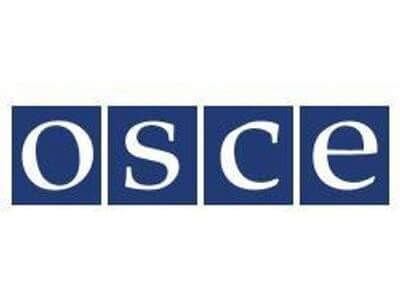The Regional Anti-corruption Platform (ACP) for Internal Control Departments of border and law enforcement agencies of the OSCE participating States of South-Eastern Europe, Ukraine, and Moldova was launched on 19 and 20 September 2019 in Vienna.
Organized and hosted by the OSCE Transnational Threats Department and the Office of the Co-ordinator of OSCE Economic and Environmental Activities, the two-day event focused on building the community of the Regional Anti-corruption Platform and developing the roadmap for the Platform’s future activities.
The event brought together more than 40 participants of the newly appointed members of the Anti-Corruption Platform from Albania, Bosnia and Herzegovina, Montenegro, Moldova, North Macedonia, Serbia, and Ukraine. Representatives from the OSCE field operations in the region were present as well as regional and international organizations engaged in preventing and countering cross-border corruption.
Ermelinda Meksi, Deputy Co-ordinator/Head of Economic Activities, Office of the Co-ordinator of OSCE Economic and Environmental Activities, opened the event stating: “The OSCE has been involved in supporting participating States in their efforts to strengthen the governance of the security sector. We believe that the establishment of an interactive regional platform on which anti-corruption cross-border practices are shared, will be a useful and practical tool to further strengthen the implementation of effective anti-corruption policies and measures at the national and regional level.”
Norwegian film director Magnus Skatvold presented a pre-screening of his award-winning documentary, Blue Code of Silence. The documentary explores the controversial legacy of the late police officer Robert Leuci, who was instrumental in exposing endemic corruption within the New York Police Department, and the criminal justice system in the 1970s.
This event is part of an extra-budgetary project made possible by the financial contribution of the Government of the United States of America.




